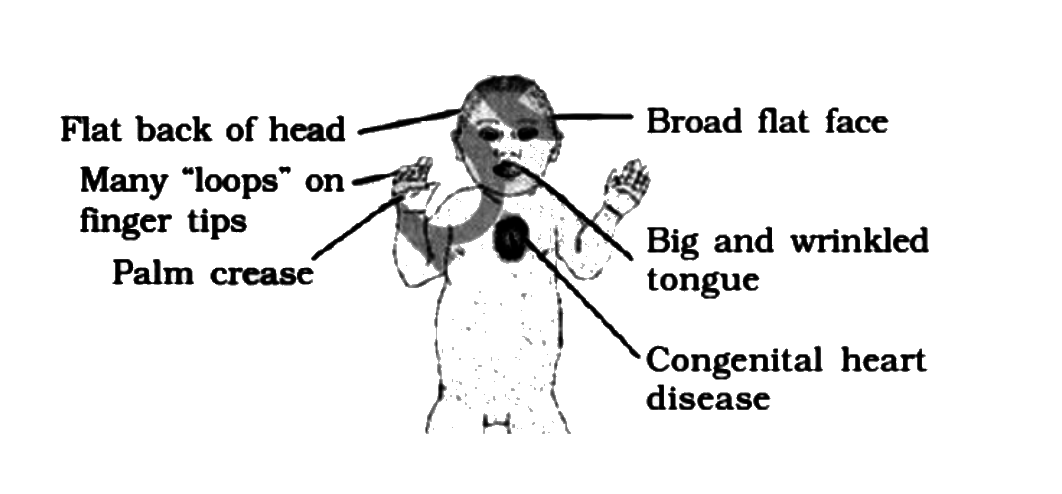Many diseases can be diagnosed by observing the symptoms in the patient. Which group of symptoms are indicative of pneumonia ?
Difficulty in respiration, fever, chills, cough, headache
Constipation, abdominal pain, cramps, blood clots
Nasal congestion and discharge, cough, sorethroat, headache
High fever, weakness, stomach pain, loss of appetite and constipation
The correct Answer is:A
To determine the group of symptoms indicative of pneumonia, we can follow these steps:
1. Understand Pneumonia:
- Pneumonia is an infection that inflames the air sacs in one or both lungs, which can fill with fluid or pus. It can be caused by bacteria, viruses, or fungi.
2. Identify Common Causes:
- The most common bacterial causes of pneumonia include Streptococcus pneumoniae and Haemophilus influenzae.
3. Recognize Affected Areas:
- The infection primarily affects the alveoli, the tiny air sacs in the lungs.
4. List Typical Symptoms:
- Symptoms of pneumonia often include:
- Fever: A common response to infection.
- Chills: Often accompany fever.
- Cough: Typically a productive cough, meaning it may produce phlegm or mucus.
- Headache: Can occur due to fever or systemic infection.
5. Evaluate Given Options:
- Compare the symptoms listed in the options with the typical symptoms of pneumonia.
- Option A: Fever, chills, cough, and headache – This matches the typical symptoms of pneumonia.
- Option B: Constipation, abdominal pain, cramps, and blood clots – These symptoms are indicative of amebiasis, not pneumonia.
- Option C: Congestion, cough, sore throat, and headache – These are more associated with common colds or viral infections, not specifically pneumonia.
- Option D: High fever, weakness, stomach pain, loss of appetite, and constipation – These symptoms suggest a gastrointestinal infection, not pneumonia.
6. Conclude:
- Based on the evaluation, the correct group of symptoms indicative of pneumonia is found in Option A: Fever, chills, cough, and headache.
Final Answer:
The group of symptoms indicative of pneumonia is Fever, chills, cough, and headache (Option A).
- Pneumonia is an infection that inflames the air sacs in one or both lungs, which can fill with fluid or pus. It can be caused by bacteria, viruses, or fungi.
- The most common bacterial causes of pneumonia include Streptococcus pneumoniae and Haemophilus influenzae.
- The infection primarily affects the alveoli, the tiny air sacs in the lungs.
- Symptoms of pneumonia often include:
- Fever: A common response to infection.
- Chills: Often accompany fever.
- Cough: Typically a productive cough, meaning it may produce phlegm or mucus.
- Headache: Can occur due to fever or systemic infection.
- Compare the symptoms listed in the options with the typical symptoms of pneumonia.
- Option A: Fever, chills, cough, and headache – This matches the typical symptoms of pneumonia.
- Option B: Constipation, abdominal pain, cramps, and blood clots – These symptoms are indicative of amebiasis, not pneumonia.
- Option C: Congestion, cough, sore throat, and headache – These are more associated with common colds or viral infections, not specifically pneumonia.
- Option D: High fever, weakness, stomach pain, loss of appetite, and constipation – These symptoms suggest a gastrointestinal infection, not pneumonia.
- Based on the evaluation, the correct group of symptoms indicative of pneumonia is found in Option A: Fever, chills, cough, and headache.
The group of symptoms indicative of pneumonia is Fever, chills, cough, and headache (Option A).
Topper's Solved these Questions
- HUMAN HEALTH AND DISEASEBook:NCERT FINGERTPS ENGLISHChapter:HUMAN HEALTH AND DISEASEExercise:Human Health And Disease
Explore 177 Videos
- EVOLUTIONBook:NCERT FINGERTPS ENGLISHChapter:EVOLUTIONExercise:All Questions
Explore 160 Videos
- HUMAN REPRODUCTIONBook:NCERT FINGERTPS ENGLISHChapter:HUMAN REPRODUCTIONExercise:Human Reproduction
Explore 185 Videos
Similar Questions
Following group of symptoms belong to

View SolutionWhich one is not a symptom of opium addiction
View SolutionMention three symptoms of the disease Hepatitis.
View SolutionGive symptoms and causes of bronchitis and pneumonia.
View SolutionGive the cause and one symptom of the following diseases :
Pneumonia
View SolutionWhich of the following symptoms indicate radiation sickness ?
View SolutionLet d1,d2,d3 be thee mutually exclusive diseases. Let S={s1,s2,s3,,.....,s6} be the set of observable symptoms of these diseases. For example s1 is the shortness of breath, s2 is loss of weight, s3 is fatigue etc. Suppose a random sample of 10,000 patients contains 3200 patients with disease d1,3500 with disease d2and3300 with disease d3. Also, 3100 patients with disease d1,3300 with disease d2and3000 with disease d3 show the symptom S. Knowing that the patient has symptom S, the doctor wishes to determine the patients illness. One the basis of this information, what should the doctor conclude?
View SolutionSelect the symptoms of the disease caused by round worm
View SolutionWhich of these symptoms is caused by the entry of sporozoites ?
View SolutionA symptom of Graves' disease is
View Solution

